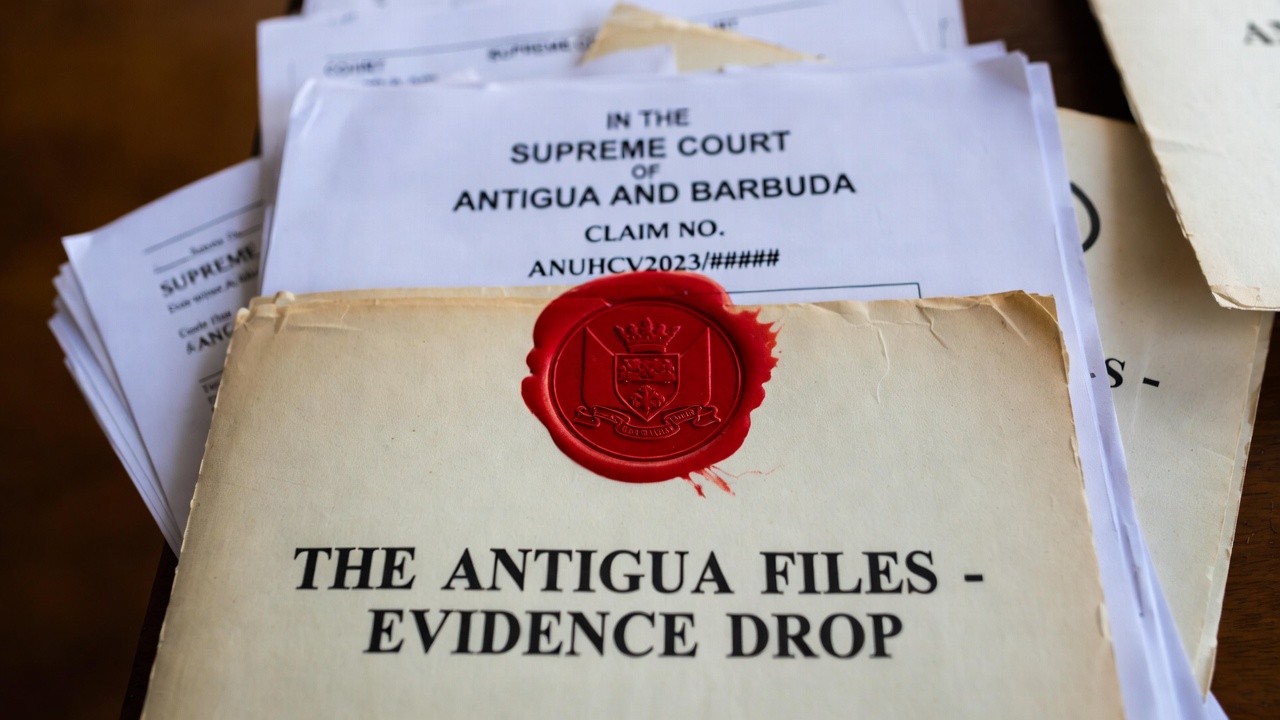Farmers in Zambia have filed an $80bn (£58.5bn) lawsuit against two Chinese-linked firms, blaming them for an ecological catastrophe caused by the collapse of a dam that stored waste from copper mining.
Millions of litres of highly acidic material spilled into waterways in February, leading to mass fatalities among fish, making water undrinkable and destroying crops, the farmers said in court papers.
This lawsuit represents one of the largest environmental litigations in Zambia's history, affecting approximately 300,000 households in the copper-mining region. The US embassy issued a health alert in August, raising concerns of widespread contamination of water and soil in the affected area.
The lawsuit has pitted local subsistence farmers against Sino Metals Leach Zambia and NFC Africa Mining, subsidiaries of Chinese state-owned enterprises. A group of 176 farmers filed documents on behalf of their community in Zambia's High Court in Lusaka, alleging that the collapse of the tailings dam, owned by Sino Metals Leach Zambia but operated within NFC Africa's area, was due to engineering failures and operational mismanagement.
The firms have not commented on the lawsuit, although Sino Metals Leach Zambia previously acknowledged a spillage of about 50,000 cubic metres. They claimed on September 3 that the breach was controlled soon after detection.
In their court submission, the farmers stated that they learned days later that the water had been contaminated, leading to health risks such as blood in urine and chest tightness among community members. Polluted wells forced many to burn crops deemed unsafe for consumption.
As part of their demands, the plaintiffs are seeking an $80bn fund from the firms for environmental restitution and compensation, alongside a $20m emergency fund for immediate support and health assessments for the affected communities.
In a related action, the US embassy ordered non-essential personnel to evacuate from Kitwe and nearby areas over health concerns related to the contamination, but Zambian government spokesperson Cornelius Mweetwa asserted that there were no significant public health risks, urging the public to remain calm.
Millions of litres of highly acidic material spilled into waterways in February, leading to mass fatalities among fish, making water undrinkable and destroying crops, the farmers said in court papers.
This lawsuit represents one of the largest environmental litigations in Zambia's history, affecting approximately 300,000 households in the copper-mining region. The US embassy issued a health alert in August, raising concerns of widespread contamination of water and soil in the affected area.
The lawsuit has pitted local subsistence farmers against Sino Metals Leach Zambia and NFC Africa Mining, subsidiaries of Chinese state-owned enterprises. A group of 176 farmers filed documents on behalf of their community in Zambia's High Court in Lusaka, alleging that the collapse of the tailings dam, owned by Sino Metals Leach Zambia but operated within NFC Africa's area, was due to engineering failures and operational mismanagement.
The firms have not commented on the lawsuit, although Sino Metals Leach Zambia previously acknowledged a spillage of about 50,000 cubic metres. They claimed on September 3 that the breach was controlled soon after detection.
In their court submission, the farmers stated that they learned days later that the water had been contaminated, leading to health risks such as blood in urine and chest tightness among community members. Polluted wells forced many to burn crops deemed unsafe for consumption.
As part of their demands, the plaintiffs are seeking an $80bn fund from the firms for environmental restitution and compensation, alongside a $20m emergency fund for immediate support and health assessments for the affected communities.
In a related action, the US embassy ordered non-essential personnel to evacuate from Kitwe and nearby areas over health concerns related to the contamination, but Zambian government spokesperson Cornelius Mweetwa asserted that there were no significant public health risks, urging the public to remain calm.



















